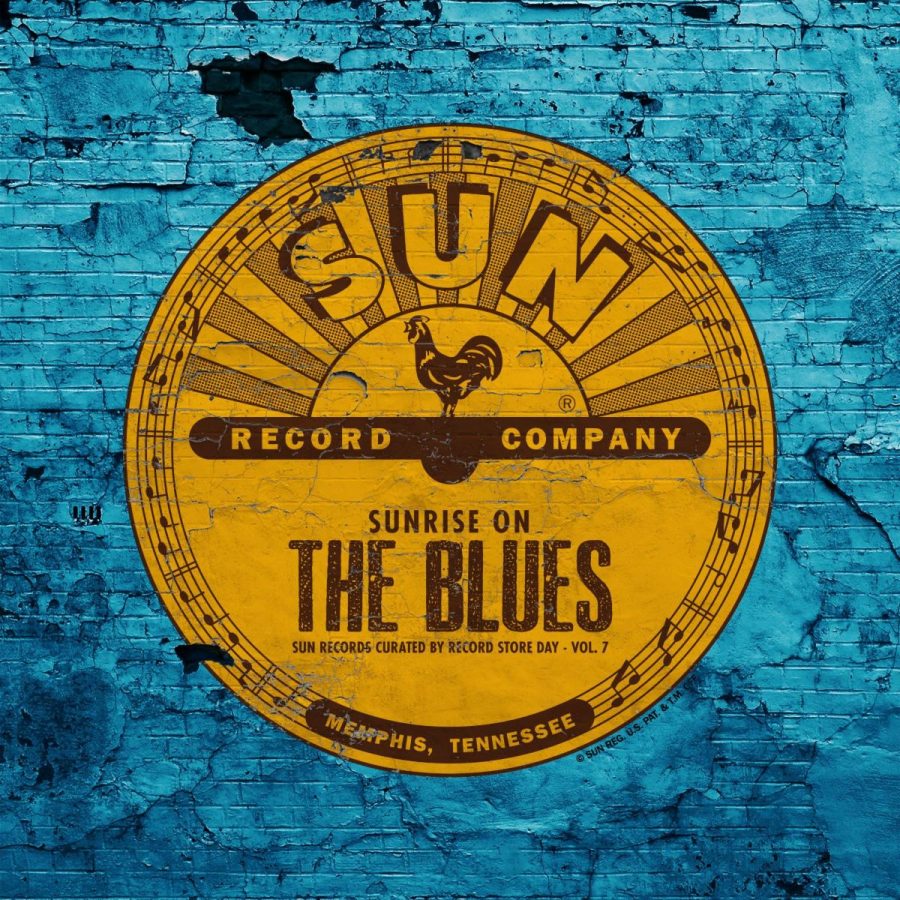SAM PHILLIPS’ Sun Records imprint is arguably the first truly great label of the modern era. It was founded in Memphis in February 1952 by Sam, Alabama born, who lived through the great American depression and who cut his musical teeth at the Muscle Shoals radio station WLAY, which didn’t categorise its music by colour and championed an ‘open’ playlist; unlike the hugely segregated American record industry of the time, which was only just letting go of ‘race records’ as an actual category and genre.
This policy would be a huge influence on Sam, who as a person and a label boss saw no colour; what he did have, inarguably, is a fine pair of ears for great music, whatever its origin, cutting early sides with Ike Turner, Howlin’ Wolf, and BB King.
Of course as the 1950s wore on Sam and Sun would become inextricably linked with the careers of Elvis, Jerry Lee Lewis, Johnny Cash; but he always had an abiding love of the blues, as he revealed in conversation with author Eric P Olsen for his 2001 essay, “Founding Father: Sam Philips and the Birth of Rock and Roll”: “The blues, it got people – black and white – to think about life, how difficult, yet also how good it can be.
“They would sing about it; they would pray about it; they would preach about it. This is how they relieved the burden of what existed day in and day out.”
And for this year’s Record Store Day, those good folks over at Org Music compiled Sunrise On The Blues: Sun Records Curated By Record Store Day Vol. 7, a limited vinyl pressing slotting into the RSD chronicles series that’s been running since 2014. The album was curated by record store staff, so expect a loving and knowledgeable deep dive into the catalogue.
There were only 4,000 pressed; there’s still a few about, if you know where to look, with Org Music itself being a springboard out.
So what blues bang doth your buck bring you? Lower your stylus and we begin aptly with the harmonica and honkytonk swing of Howlin’ Wolf’s “Everybody In The Mood”, which nods and winks and totally refashions Glenn Miller to a downhome and ragged blues, sitting on your hips. Little Junior’s Blue Flames follow on with “Mystery Train”, who wraps his mellifluous tremolo around what was to become a rockabilly standard, laid down in 1953. Rosco Gordon gets to the heart of the lived experience with “Let’s Get High” – which sashays on a bourbon piano. “I Won’t Cry”, by Johnny Adams, is a sweet and yearning R’n’B side from 59.
Earl Hooker was an early proponent of the electric guitar, playing Chicago streetcars and street corners; his “Going On Down The Line” is a fine jump blues for sassy cats. Lost John Hunter & His Blind Bats committed “Cool Down Mama” to 78 in 1950 and the recording makes up in evocation of a very precise moment in modern cultural progress what it lacks in strict fidelity. Blues should sound like this. Side A wraps with Big Walter Horton’s “Grandma Told Grandpa”, with real harmonica power and edge.
Flip the wax and we begin the obverse with “Policy Man Blues”, Sleepy John Estes’ slow and wonderfully primitive blues. Now there was a singer who had seen the life he wrote of; the son of a sharecropper, he had lost the sight in one eye by his mid-teens, and was completely blind by the early 1960s. Listen and learn; wonder, as he reaches out across the decades.
“If Crying Would Help Me” is an early and stately electric-licking lament by Little Milton, who would eventually find success with Checker. “Cotton Crop Blues” captures harmonica man James Cotton in ‘54, at a period of transience from Howlin’ Wolf’s ensemble to Muddy Waters’ set-up over in Chicago; that guitar is abrasive, the angst and anger and burning weariness of the cotton-cropping life ringing through.
Doctor Ross – ‘The Harmonica Boss”, to give him his full epithet – was one of those artists whose career never really took flight; he worked for GM Motors in Michigan for a great deal of his adult life, which to ours ears sounds a great shame, given the power and authenticity he brings to “Cat Squirrel”, It’s rare-as; another compelling reason to pick up this excellently curated comp.
The Prisonaires’ light, acoustic doowop, “That Chick’s Too Young To Fry”, is a lovely steer to the left. The humour and sunniness, the proto-beatboxing vocal brass improvisation, belies the group’s hardscrabble lives in the Tennessee State Pen, where two of the five were serving 99 years for murder. Which tees us up grimly if appropriately for Pat Hare, who was vowing “I’m Gonna Murder My Baby” way back in ‘54; it’s got fuzz power chords. Robert Palmer was quoted as saying that it was “a heavy metal as it gets”. Unfortunately, the song would prove all too autobiographical as Pat indeed did murder his baby in December ‘63 and spent the last 16 years of his life incarcerated as a consequence.
A trio of darker-inclined songs – and the album – resolve in “We All Got To Go Some Time”, a 1953 cut from Joe Hill Louis, who kept his appointment earlier than he probably hoped after contracting tetanus in 1957.
It’s a fascinating little compilation, with an erring to the early, raw electric blues power, with a number of really rare cuts lovingly assembled. If you can get your hands on a copy, do, and travel back to a world which was already gazing at modern rock just cusping the horizon, but with the knowledge and scars of the shotgun shack and Jim Crow scarring its chest.














No Comment